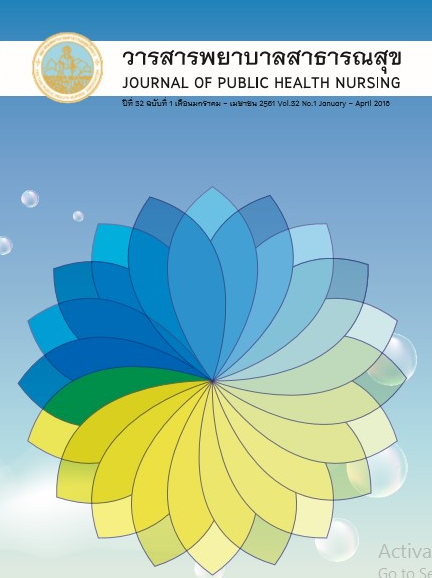Effects of Perceived Self-Efficacy Program on Personal Protective Equipment Use among Street Sweepers in Mueang Sisaket District
Keywords:
perceived self-efficacy, street sweeper, personal protective equipmentAbstract
Street sweepers in every area of Thailand are laborers under the jurisdiction of local
administrative organizations. Their work is to clean municipal areas and reduce the source
of diseases. This quasi-experimental research aimed to study the effects of perceived selfefficacy programs on the use of personal protective equipment (PPE) in street sweepers in
Mueang Sisaket District. The study subjects were 59 street sweepers divided into an experimental
group (n = 30) and a comparison group (n = 29). The duration of the program was 6 weeks, a
4-week trial period and a 2-week follow-up period. The experimental group received an
intervention applying the Self-Efficacy Theory and its activities (Bandura, 1977). The program
activities included educational and exchange experiences, use of the model/speech incentive,
and physiological exchange assessment. Data were collected using interview questionnaires
which included general information, knowledge related to illnesses, health hazard exposure,
PPE, perceived self-efficacy to use PPE, and PPE use behavior. The data were analyzed by
percentage, mean, standard deviation, t-test, Chi-square, and repeated-measure ANOVA.
The results of the study revealed that after the intervention, the experimental group
had significantly higher mean scores of knowledge related to illness, health hazard exposure
and PPE, perceived self-efficacy in PPE use, and PPE use behavior (p < .05). However, after the
follow-up period, only the mean score of knowledge was significantly increased compared
to post-intervention findings (p = .003). When comparing the mean scores between the
experimental group and comparison group, post-intervention mean scores of the
experimental group were significantly higher for perceived self-efficacy in PPE use (p = .02).
Study results suggest that responsible agencies should take measures to educate
and promote self-efficacy to use PPE by street sweepers so that street sweepers adopt
appropriate PPE use behaviors.
Downloads
Published
How to Cite
Issue
Section
License
บทความที่ตีพิมพ์และแผนภูมิรูปภาพถือเป็นลิขสิทธิ์ของวารสารพยาบาลสาธารณสุข (Thai Public Health Nurses Association)







